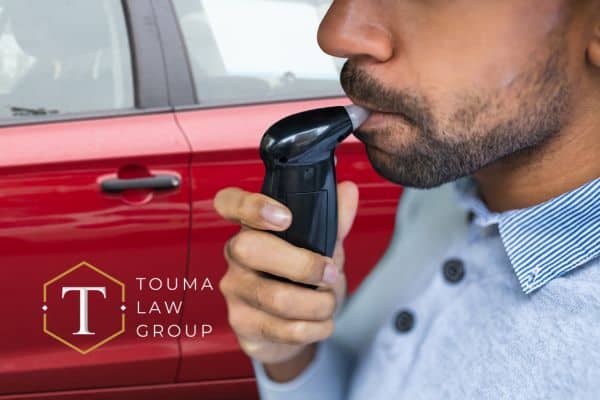Individuals convicted of driving under the influence in the state of South Carolina may be eligible for the Ignition Interlock Device (IID) program. In this program, DUI offenders have a device installed on their vehicle that monitors their Blood Alcohol Concentration (BAC) levels.
Drivers blow into the device in order to be able to start their vehicle. This program can help prevent complete loss of driving privileges so the offender may keep some normalcy in their life. Here we answer some frequently asked questions about this program. To learn how the program works, who is eligible, and the costs associated, continue reading.
Who Can Enroll in the Ignition Interlock Program in South Carolina?
Some offenders have the option of entering the program while others may be required to enroll by the state of South Carolina. Drivers who are first-time DUI offenders, who blew less than 0.15 percent, or those convicted of driving with an unlawful alcohol concentration (DUAC) but refused a breathalyzer retain the option of enrollment. All other DUI offenders outside of these parameters are required to install an IID. First-time offenders who are convicted of a felony DUI or endangered a child are also required to enroll.

Individuals who received an automatic license suspension under South Carolina’s Implied Consent Law by refusing a breath test may apply for the program to end their suspension.
How Does the Ignition Interlock Program Work in South Carolina?
Eligible offenders will be notified by mail once they have met the eligibility requirements. In order to qualify, all required suspension periods related to the conviction must be satisfied.
After the driver is determined to be eligible, they must get the device installed and obtain an IID-restricted license from the SCDMV. The IID must be installed at a certified installation center. The cost of the ignition interlock installation, calibration, and maintenance of the device falls on the offender. The cost to repair any damage to the device is also the responsibility of the driver.
The device prevents the start of a vehicle by a driver with a Blood Alcohol Content over 0.02. It may also require the driver to pull over and test again during their trip to ensure continued sobriety. Violating the conditions of your restricted license and the requirements of the IIDP comes with a range of penalties.
How Long Do I Have to Use the Ignition Interlock Device in South Carolina?
The length of your program time depends on the type of violation. Here is a quick guide to the time periods for common DUI offenses:
- First Offense with BAC greater than 0.15 – 6 months
- Second Offense – 2 years
- Third Offense – 3 years
- Fourth or Greater Offense – Lifetime. New laws allow these offenders to apply to have the IID removed after 5 years if they can demonstrate low risk and gain the confidence of the court and the DMV
- Felony DUI involving great bodily injury – 3 years
- Felony DUI involving death – 5 years

Drivers convicted of a DUI-related charge in another state are required to use the device for a period of time that is greater between South Carolina and the other state.
What Happens if I Violate the Ignition Interlock Device Program in South Carolina?
There are additional penalties for drivers who violate the requirements of the program including jail time, fines, and extension of required time in the program. A person who enables a restricted driver may also face criminal charges.
The IIDP also applies an Accumulated Point Total (APT) system for misuse and violation of the program. Each violation is assigned a point value. After points have been accumulated, a driver faces extended time in the interlock ignition program and may also be required to enroll in other substance abuse programs.
Here is an overview of the point system and a list of other common violations and their associated consequences:
Point System Violations and Penalties
- Re-test with alcohol concentration between 0.02 and 0.04 – 1/2 point
- Re-test with alcohol concentration between 0.04 and 0.15 – 1 point
- Re-test with alcohol concentration over 0.15 – 2 points
- Failure to complete re-test -1 point
- Tampering with device – 1 1/2 point
- Allowing another person to blow on your behalf – 1 1/2 point
Offenders with an APT of two or more points, but less than three will receive a 2-month extension of the program. Those with three or more points, but less than four will have a four-month extension and must take a substance abuse assessment. Drivers with 4 or more points will be suspended from the program for 6 months and must follow the plan of treatment services provided by an assessment.
Operating a vehicle without installation of properly operating, certified IID
First offense – Misdemeanor; $1000 minimum fine, up to one year in jail, and 6 months IID extension
Second offense – Misdemeanor; $5000 minimum fine, up to 3 years in jail, and 1 year IID extension
Third or subsequent offense – Felony; $10,000 minimum fine, up to 10 years in jail, and length of required time with IID is extended by 3 years
Tampering with IID or Obstructing the Camera
Tampering with the device or obstructing the camera is classified as a misdemeanor with a penalty of a fine of up to $500 and up to 30 days in jail.
Allowing an IID Restricted Driver to Operate an Unequipped Vehicle
Individuals who allow an IID-restricted driver to operate a motor vehicle without a proper, certified IID can face misdemeanor charges. This includes letting the offender rent, lease, or drive an unequipped vehicle. The penalty for this misdemeanor is up to a $500 fine and up to 30 days in jail.

Asking Another Person to Blow into the Device
Some drivers may attempt to circumvent the restrictions of an IID by asking another person to blow into the device. This is considered a misdemeanor punishable by a fine of up to $500 and up to 30 days in jail.
Blowing into the Device on Behalf of an IID Restricted Driver
The crime of blowing into a device on behalf of a restricted driver is also a misdemeanor, punishable by a fine of up to $500 and up to 30 days in jail.
Can I Drive a Work Vehicle if I am in the IID Program?
In some cases, a driver may be permitted to operate work vehicles that are not equipped with ignition interlock devices. To qualify for this employment exemption, the driver must prove that it is necessary to the scope of employment and that the motor vehicle is used only for business purposes. Offenders who are self-employed or employed by family do not qualify. The driver must also be able to produce a copy of employer vehicle authorization anytime they are driving the vehicle.
How Much Does an Ignition Interlock Cost in South Carolina?
The individual must pay all costs associated with the IID. This includes installation, monitoring, calibration, and maintenance. The price can vary based on your monitoring requirements. Typically, the cost of installation is between $70 and $150. After the initial fee, it costs an average of $3 per day in the state of South Carolina. Contact an installation service center location in your area for accurate pricing.
If you have been charged with a DUI in the state of South Carolina, it is important to seek legal advice about all of your options. A DUI attorney can help build a strong defense for your case, and assist you through the process of adhering to your requirements in the event of a conviction. For more questions about your specific situation, contact Touma Law Group for your free initial consultation.


